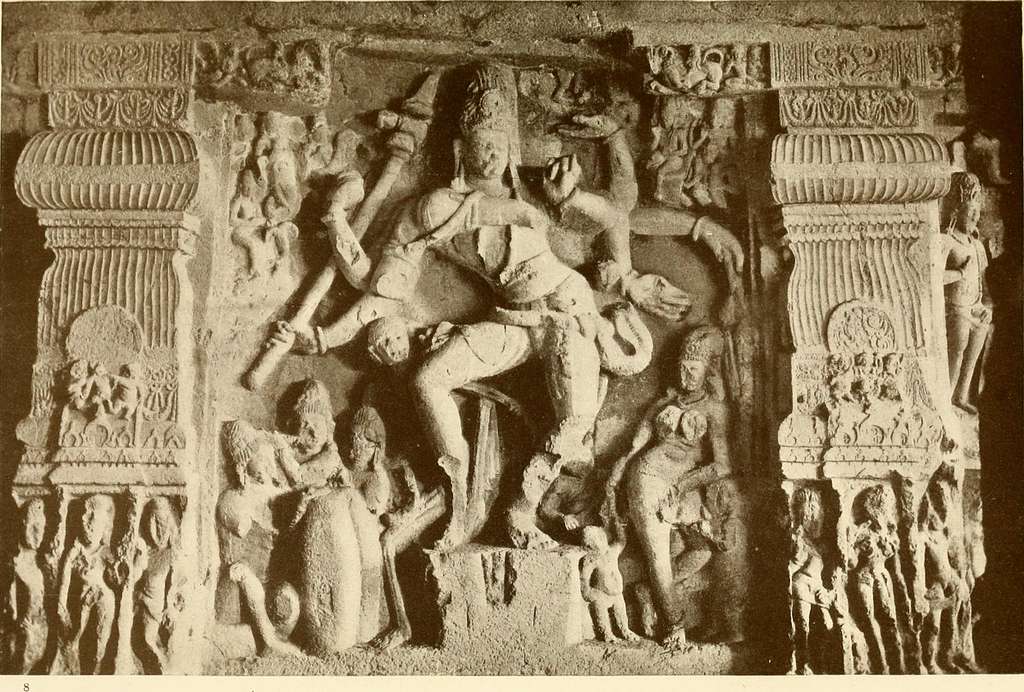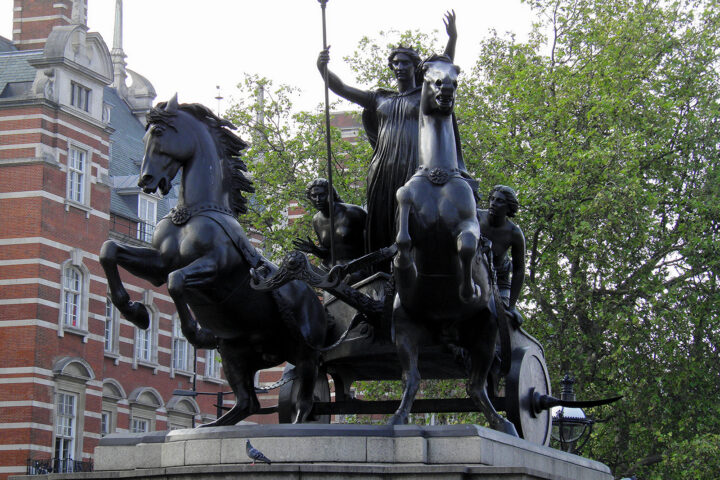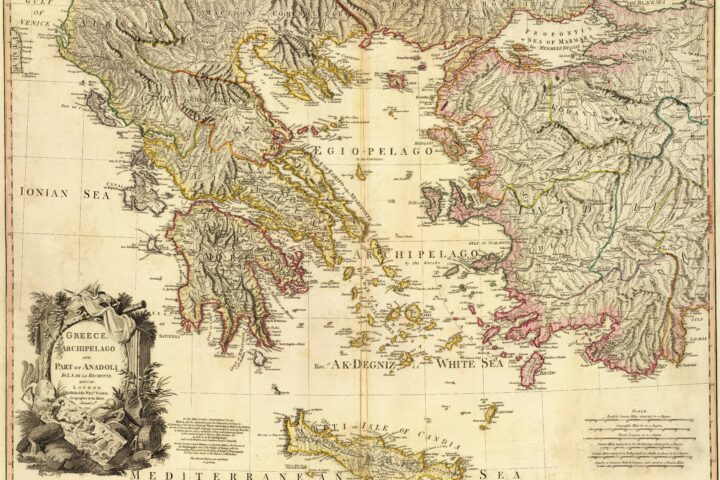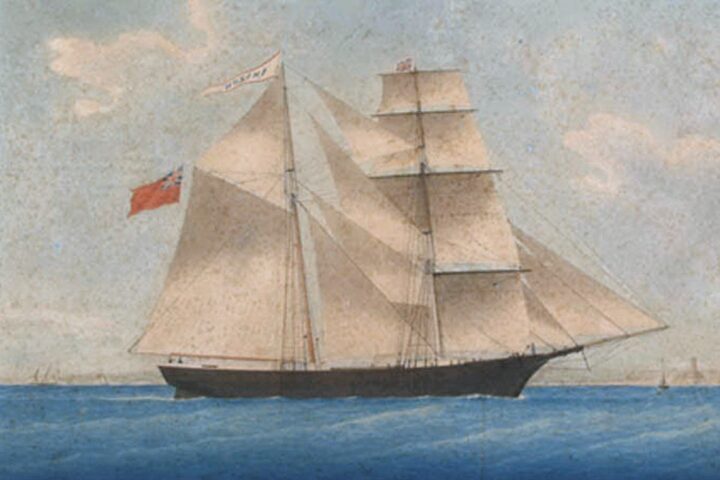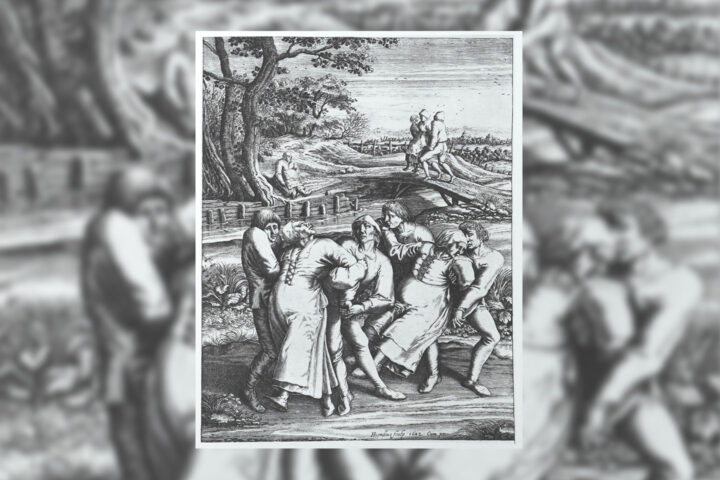Source: https://picryl.com/media/indian-myth-and-legend-1913-14597531528-056f95
There are many figures in history whose existence is shrouded by mystery. Learn about them and how they are perceived in each of their respective cultures and media.
Just like today, history has been populated by many individuals, entrepreneurs, or antiheroes, whose stories became legends and have been preserved more or less vividly in our cultural memory. But some of these figures are so out of history and so obfuscated with optimistic history that they tempt to the borderline of history and mythology. Gradually, such stories ceased to be solely the stories of real people and merged with the folktales, so that it remained an ambiguity whether those individuals existed in reality or whether they were invented.
King Arthur

Source: https://picryl.com/media/the-death-of-king-arthur-by-james-archer-1860-00a7b3
King Arthur is one of the most popular characters in legend who has appeared in a number of medieval romances as well as more modern forms of media. According to British legend, he was a king and the sovereign of the Round Table, a table for those who had knightly fellowships. We don’t exactly know how his stories came to be- if they are about a real person or not- but they probably originated in Wales and certain parts of northern Britain.
According to these accounts, King Arthur had led the Welsh resistance against the Saxons and won at Mons Badonicus. More literature was also found which did wonders to his already marvelous image and pushed the image of Arthur’s court in the heads of many.
It was in 1136 when Welsh cleric, Geoffery of Monmouth wrote the History of the Kings of Britain which also included the origins and birth of Arthur. It was Geoffery who recounted how a sixth-century king by the name of Uther Pendragon had a son with Ygerna, the wife of a local duke, after the magician Merlin had turned him into the likeliness of her husband. He added, “That night she conceived Arthur, the most famous of men, who subsequently won great renown by his outstanding bravery.”
Sounds legit enough? Well, scholars didn’t find it very convincing and unanimously dismissed this account as pseudo-history. But people still chose to believe in it and one Earl of Cornwall, Richard, was so invested that he “traded three prime estates for this treeless headland, which is separated from the mainland by an isthmus, and built a castle on it” in May 1233. He believed he was the successor of Arthur!
This account and the many others that followed did little to disrupt the imagination and belief people had in King Arthur. An unresolved question has taken root in the minds of many- was there really a King Arthur or at least some other historical hero who is the basis for Geoffery’s history?
Homer

Source: https://en.wikipedia.org/wiki/File:Homer_Statue_Munich.jpg
A lot of people might already know about Homer (no, not the Simpsons one), who was the presumed author of both the Iliad and the Odyssey. These are two ancient Greek epic poems which have got Homer’s name attached to them although the rest of his existence is shrouded in mystery.
If he was real, his influence can’t be downplayed; considering Homer wrote two of the most culturally significant pieces of literature in history which have formed the backbone of literary education to this date. Historians have tried every piece of history they could find to come up with a few assumptions about the writer and currently, everyone agrees that Homer was most probably a single, male mind because of the consistency with which the pieces were written.
Scholars who argue against his existence have such doubts because of a lack of contemporary evidence at the time he lived- either in the 8th or 9th century B.C. The first ever reference to him comes in the 7th century B.C. which is about 100 years after his lifetime and the gap is too big to be considered confidently. There are some more arguments too but none of these are strong enough to deny his existence. Still, scholars haven’t agreed about whether he was real or not and the debate persists till date.
Lao-Tzu

Source: https://commons.wikimedia.org/wiki/File:Laozi_Statue,Tai_Lake.jpg
Lao-Tzu (also known as Laozi) is revered today as the very first philosopher of Daoism, a philosophy which influenced Chinese philosophy for more than 2000 years. He is also the alleged author of the Daodejing, a piece of Daoist literature. Laozi has profound importance in the field of Chinese thought and philosophy and is said to have lived during the 6th century B.C.
The first reference to Laozi comes in a biography, titled the Shiji (Records of the Historian), written by Sima Qian. This historian had little to no solid information about the philosopher and wrote that Laozi was a native of village Quren. After discussing Laozi’s origins, Sima Qian writes about the famous meeting between the philosopher and the much younger Confucius. This is a much-celebrated meeting but the lack of concrete and consistent accounts about this make it seem like nothing but a legend. This is followed by his journey to the west after which nothing is known of what “has become of him,” as stated by Sima Qian.
However, many modern scholars believe that Laozi is a legendary person and didn’t exist in real life. To put it more accurately, they believe that the Daodejing is most probably not written by just one person. This is handled very simply by historians though. Some give the complete credit to astrologer Dan while another group of scholars believe that descendants of the philosopher wrote down this Daoist writing.
Sun Tzu

Source: https://customcreative.store/2024/01/28/exploring-sun-tzu-philosophy/
Sun Tzu is well known amongst the reading community as the much-celebrated author of The Art of War. He was a Chinese strategist who lived in 500 BCE and was associated with The School of the Military. What’s fun here is that Sun Tzu is a contemporary of Lao-Tzu- both of them lived at the same time and both of them have planted seeds of doubt about their existence in the minds of modern scholars. Similar to his Taoist philosopher contemporary, his life and authorship of The Art of War has become a topic of discussion and debate among the literary research community.
However, his life has more solid evidence to support it and has been confirmed by the discovery of his work in 1972 CE as well as the discovery of another Art of War written by his apparent descendant, Sun Bin. Those who are against his authorship still argue that this proves nothing and the earlier writing could have been written by someone else entirely!
Pythagoras

Bet you weren’t expecting Pythagoras in this list! Every student and teacher have come across his mathematical formulations more than a few times during their schooling. Philosophy enthusiasts know him as one of the most famous but controversial ancient Greek philosophers who’s live started off ordinary but soon, was perceived as a semi-divine figure.
Pythagoras lived between the years 570 BC and 490 BC and spent most of his childhood on the island of Samos, which is located off the coast of Modern Turkey today. When he turned forty, he shifted to Croton, a city in Southern Italy and continued most of his philosophical activity from there. Fun fact about him and his work is that he never wrote anything and his work wasn’t written in a detailed manner by any of his contemporaries either!
By the first century BC, he had become a semi-divine figure who dictated all that was true in Greek philosophy and this included much of Aristotle’s and Plato’s ideas. What this means is that a lot of philosophical treatises were forged in his name and in the name of his followers to support other views!
This has posed a very difficult and important question for scholars and historians now- what did the actual Pythagoras think and do? How much from what we know today is his actual contribution? The study goes on and maybe, hopefully, we will soon know more about him as the years go by.
Resources
King Arthur
- Hammer, J. (2022, August 23). Was King Arthur a Real Person? Smithsonian Magazine; Smithsonian Magazine. https://www.smithsonianmag.com/history/king-arthur-real-person-180980466/
- King Arthur | Story, Legend, History, & Facts | Britannica. (2024). In Encyclopædia Britannica. https://www.britannica.com/topic/King-Arthur
Homer
- Lesso, R. (2022, June 3). Who Was Homer, and Why Is He Important? TheCollector; TheCollector. https://www.thecollector.com/who-was-homer-and-why-is-he-important/
- Homer | Biography, Poems, & Facts | Britannica. (2024). In Encyclopædia Britannica. https://www.britannica.com/biography/Homer-Greek-poet
- Was Homer a real person? | Britannica. (2024). In Encyclopædia Britannica. https://www.britannica.com/question/Was-Homer-a-real-person
Lao-Tzu
- Laozi | Biography, Philosophy, Beliefs, & Facts | Britannica. (2024). In Encyclopædia Britannica. https://www.britannica.com/biography/Laozi
- Chan, A. (2018). Laozi (Stanford Encyclopedia of Philosophy). Stanford.edu. https://plato.stanford.edu/entries/laozi/
Sun Tzu
- Mark, J. J. (2020, July 9). Sun-Tzu. World History Encyclopedia. https://www.worldhistory.org/Sun-Tzu/
- Brown, E. (2023, March 10). The Real Sun Tzu: Man, Myth or Legend? – The 1440 Review. The 1440 Review. https://1440review.com/2023/03/10/the-real-sun-tzu-man-myth-or-legend/
Pythagoras
- Huffman, C. (2024). Pythagoras (Stanford Encyclopedia of Philosophy). Stanford.edu. https://plato.stanford.edu/entries/pythagoras/
- Vrchoticky, N. (2020, September 30). The Reason Why Pythagoras Might Not Have Been Real. Grunge; Grunge. https://www.grunge.com/254310/the-reason-why-pythagoras-might-not-have-been-real/

